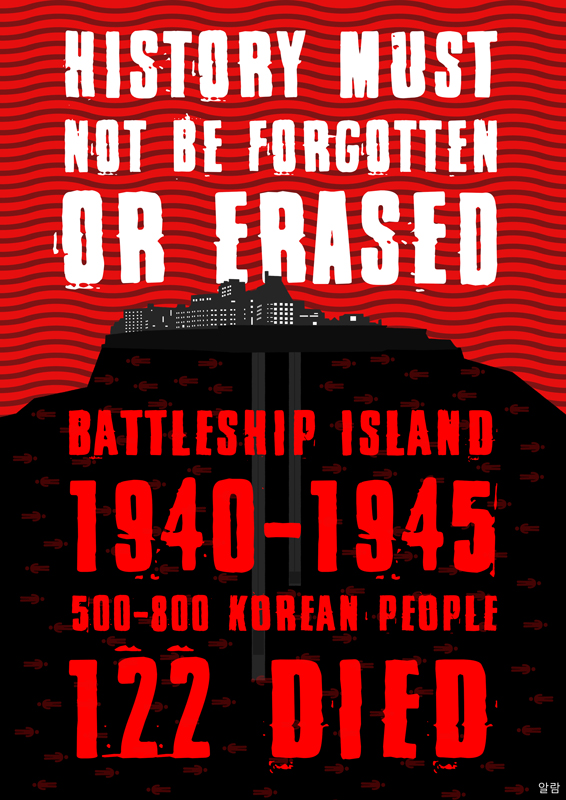- 한국어
- English
- 日本語
- 中文
- العربية
- Español
- Français
- Deutsch
- Pусский
- Tiếng Việt
- Indonesian
By Honorary Reporter Safae Lagdani from Italy
Illustration= Hazlam Anuar from Malaysia

6 posters showing what occurred on Battleship Island (Hazlam Anuar)
Japan's Industrial Heritage Information Centre, which was opened to the public on June 15 in Tokyo, did not include in its exhibition anything about the abuse and exploitation of Korean, Chinese and Taiwanese who were forced to work during Japanese colonization of Asia. Instead, the center simply highlighted Japan's industrial advances in the 20th century.
Hashima (Battleship) Island is notorious as a site of forced work perpetrated by Japan. The information center is being used by the Japanese government to conceal the truth and distort history. "The center is at the heart of sensitive issues including history distortion," said Tomohiro Shinkai, executive director of the Meeting to Support the Trial for Chinese Forced Laborers based in Nagasaki. Japanese Ambassador to UNESCO Kuni Sato also acknowledged that forced labor occurred on the island, saying, "There were a large number of Koreans and others who were dragged against their will and forced to work under harsh conditions in the 1940s."
Japan also committed horrific abuses against young women in Korea. Teenage girls were taken from their families and sold as sex slaves to the Japanese imperial army. Korea has struggled for years to receive an official apology from the Japanese government, which continues to deny the accusations. One victim, Gil Won-ok, was just 13 at the time of her abduction. She was told that she would work in Japan but got sent to Manchuria, China, instead and was repeatedly raped until age 18. Since 1998, she and other victims have publicly blasted Japan for its crimes before and during World War II and demanded an official apology. She attends every Wednesday a protest to that effect in front of the Japanese Embassy in Seoul. Gil also went to Geneva in 2014 to present to the United Nations a petition with 1.5 million signatures demanding justice for the victims of Japan's wartime sexual slavery.
The documentary "The Apology" chronicles the stories of three former sex slaves who were among the 200,000 exploited by Japan. The Korean movie "I Can Speak" is based on the true story of a victim who brought her case to the U.S. Congress despite speaking no English. Both of these films help the world understand what the victims went through as well as learn of history not taught in the majority of schools in Europe.
chaey0726@korea.kr
*This article is written by a Korea.net Honorary Reporter. Our group of Honorary Reporters are from all around the world, and they share with Korea.net their love and passion for all things Korean.